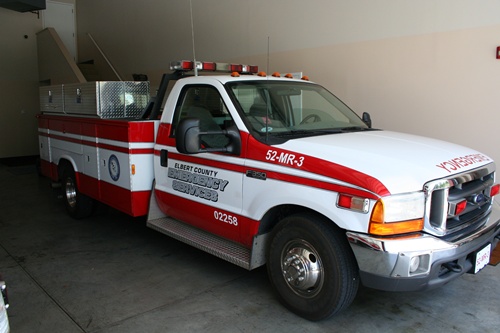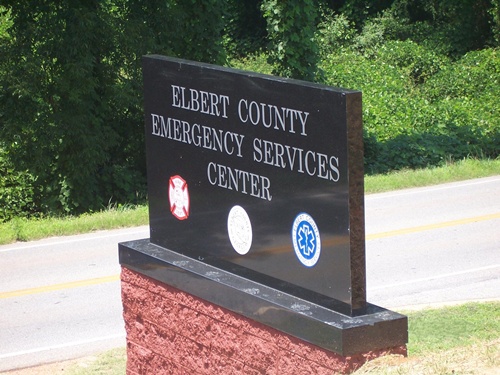Floods, Flash Floods Can Happen Anytime, Anywhere
Floods are the most common and widespread of all natural disasters, except fire. In Georgia, may communities experienced severe flooding in 2009 caused by rains and heavy thunderstorms in the spring and fall. Hundreds of homes and businesses were damaged or destroyed and ten people lost their lives. Dam failures are potentially the worst flood events. When a dam fails, an enormous quantity of water suddenly rushes downstream, destroying anything in its path.
Floods can be slow or fast rising but generally develop over a period of days. Flash Floods usually result from intense storms dropping large amounts of rain within a brief period. They occur with little or no warning and can reach full peak in only a few minutes.
"Neighborhoods located in low-lying areas are especially at risk for flooding. Those near bodies of water downstream from a dam are vulnerable, too," says Elbert County Emergency Management Agency (EMA) Director Chuck Almond.
Here is some information to help you develop a plan and be ready to act before the possibility of a flood or flash flood threatens you or your family:
Know What to Expect
Know your area's flood risk -- if unsure, call your local Emergency Management Agency or Code Enforcement Office/Zoning Department.
If it has rained hard for several hours or rained steadily for several days, prepare for the possibility of flooding.
Closely monitor a local radio station, TV station or NOAA Weather Radio for flood information.
Reduce Potential Flood Damage By
Raising your furnace, water heater, and electric panel if they are in areas of your home that may be flooded.
Consulting a professional for further information about damage reduction measures that you can implement.
Floods Can Take Several Hours or Days to Develop
A Flood WATCH means a flood is possible in your area.
A Flood WARNING means flooding is already occurring or will occur soon in your area.
Flash Floods Can Only Take a Few Minutes or a Few Hours to Develop
A flash flood WATCH means that flash flooding is possible in your area.
A flash flood WARNING means a flash flood is occurring or will occur very soon.
Prepare a Family Disaster Plan
Check to see if you have insurance that covers flooding. If not, get flood insurance immediately.
Keep insurance policies, documents, and other valuables in a safe-deposit box.
Assemble a Disaster Supplies Kit Containing
First Aid Kit and essential medications.
Canned food and can opener.
At least three gallons of water per person.
Protective clothing, rainwear, and bedding or sleeping bags.
Battery powered radio, flashlight, and extra batteries.
Special items for infants, elderly, or disabled family members.
Written instructions for how to turn off electricity, gas and water if authorities advise you to do so. (Remember, you'll need a professional to turn them back on.)
Identify where you could go if told to evacuate. Choose several places -- a friend's home in another town, a motel or a shelter.
When a Flood Watch is Issued
Move your furniture and valuables to higher floors of your home.
Fill your car's gas tank, in case an evacuation notice is issued.
When a Flood Warning is Issued
Closely monitor NOAA Weather Radio, local radio or television for the latest weather forecasts.
If told to evacuate, do so immediately.
When a Flash Flood Watch is Issued
Be alert to signs of flash flooding and be ready to evacuate at a moment's notice.
When a Flash Flood Warning is Issued
Of if you think flooding has begun, evacuate immediately. You may have only seconds to escape. Act quickly!
Move to higher ground away from rivers, streams, creeks, and storm drains. Do not drive through or around barricades...they are there for your safety.
If your car stalls in rapidly rising waters, abandon it immediately and climb to higher ground.


